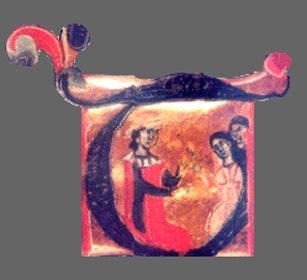English
Guillem de Berguedà (12th century) was a troubadour and feudal lord, son of the Viscount of Berguedà.
Thirty-one of his poems, written in Occitan, are still conserved today and are an excellent example of the style of the Provence troubadours. The Occitan genre of the sirventes predominates in his work, and these parodies are full of sarcasm, cruelty, and vitriol aimed at prominent men of his times, for example Viscount Ramon Folc de Cardona, whom he killed as a traitor, the Bishop of Urgell and Ponç de Mataplana (Cansoneta leu e plana – Little Light and Simple Song), to whom he also devoted a heartfelt lament (Consiros cant e planc e plor – Pensive I Sing and Grieve and Weep) after he was killed by the Saracens.
Guillem de Berguedà's relationship with King Alfons I is characterised by moments of loyalty and others of confrontation, as some of his sirventes reveal, for example Be.m volria q'om saubes dir (Your Wish Is My Command). Most of his poems are set to the music of the popular songs of his time.
He also wrote elegant amorous verse, for example Quan vei lo temps camjar e refrezir (When I See the Weather Change and Chill) which faithfully reflects the canons of courtly lyrics, as Martí de Riquer affirms. These poems were very famous in the Middle Ages.
Guillem de Berguedà was a scathing, caustic troubadour who avoided euphemisms and clearly communicated his passions. His verses are very expressive.
Web page: Francesc Viñas for AELC.
Portal image: Guillem de Berguedà, in a miniature of his times, taken from the cover of the collection Les poesies del trobador Guillem de Berguedà (Poems of the Troubadour Guillem de Berguedà), Barcelona: Quaderns Crema, 1996.
Translation: Julie Wark.

